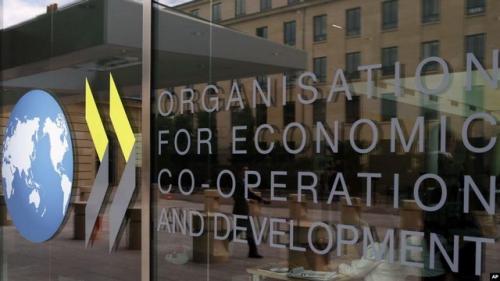The global minimum tax rate
OECD and G20 countries adopted 15 measures to change the international tax system to adjust to the digitalisation of the economy.
- Análisis

In February 2013, the OECD published "Tackling Base Erosion and Profit Shifting" (BEPS). In it, OECD and G20 countries adopted 15 measures to change the international tax system to adjust to the digitalisation of the economy. This package is the precursor to the new tax reform proposed at the G20 meeting.
On 1 July 2021, the same bodies presented the "Declaration on a two-pillar solution to address the tax challenges arising from the digitisation of the economy" signed by 132 countries. This agreement aims to alleviate the fiscal pressures arising from the covid-19 crisis and adapt to the economy's digitalisation. Two pillars are the base of the tax reform structure.
Pillar one
Pillar one seeks to develop profit tax rules for highly digitised companies with operations around the world. It wants to modify the profit tax confined to the physical presence of companies. Multinational companies will pay in the final market of goods or services. For example, Google would have to pay taxes in Colombia even when its parent company has a tax address based in the US.
Companies that fall under pillar one rules are multinationals with a global turnover of more than 20 billion euros and pre-tax profitability equal to or greater than 10% of assets, excluding extractive sectors (mining) and regulated financial services.
Pillar two
Pillar two continues the efforts to tackle BEPS with the introduction of a global minimum tax regime. It aims to implement three international taxes for multinationals: 1) an Income Inclusion Rule (IIR); 2) a Lower Tax Payments Rule (UTPR), and 3) a treaty-based standard. These three aim to have a minimum tax on multinational companies of 15%.
Pillar two rules will apply to multinational companies with a revenue of 750 million euros or more. However, countries are free to use the Income Inclusion Rule to multinationals that do not meet this threshold. Government entities, international and non-profit organisations, pension funds, investment funds of a group of multinational companies or any portfolio vehicle will not be subject to these rules. Pillar one and two rules are to become law in 2022 to be effective in 2023.
Latin America
In 2019, economists Tørsløv, Wier and Zucman estimated the profits made by multinationals and the loss of tax revenue from tax havens, using data from 2017. The study found that the loss of tax revenue from tax havens is $6,689 billion in Brazil, $3,296 billion in Mexico, $1,402 billion in Chile, $1,125 billion in Argentina, $459 billion in Colombia, $359 billion in Costa Rica, $291 billion in Venezuela and $230 billion in Uruguay. Most of the money goes to Caribbean havens and Asian Pacific islands. However, most of these havens are signatories to the OECD/G20 agreement.
In terms of the impact of the health crisis, during the first quarter of 2021, Brazil, Peru, Guatemala, Costa Rica and Honduras increased their tax revenues compared to 2019 across all types of taxes. Their collection is higher than pre-pandemic levels. In comparison, Panama only recovered in ISR, while Trinidad and Tobago, Uruguay and Chile VAT. The latter are the countries with the most collection problems in the region, as their tax recovery is not homogeneous.
The fiscal and options space in Latin American countries is negligible. The adoption of pillar one will increase the number of companies taxed in the region, while pillar two will increase the tax rate. The implementation of these rules will help improve economic recovery in countries facing tax collection difficulties.
Given the exceptions, primary exporting countries with strong financial sectors will not be much affected. Mexico, Brazil. Argentina and Central America, where offshore production is important will benefit more.
Num.23, Year 2021, August 13th
- Jorge A. Zavaleta R , Faculty of Economics, UNAM, member of obela.org
- OBELA: Oscar Ugarteche (Coord), Armando Negrete, Carlos de León, Bertín Acosta, Joselin García.
Del mismo autor
- The global minimum tax rate 16/08/2021
- Tasa impositiva mínima global 16/08/2021
- Private consumption, the internal engine of the economy 22/06/2021
- Consumo privado, motor interno de la economía 22/06/2021
- 2020'S first rebound was from foreign trade 14/05/2021
- El primer rebote del 2020 fue por comercio exterior 14/05/2021








